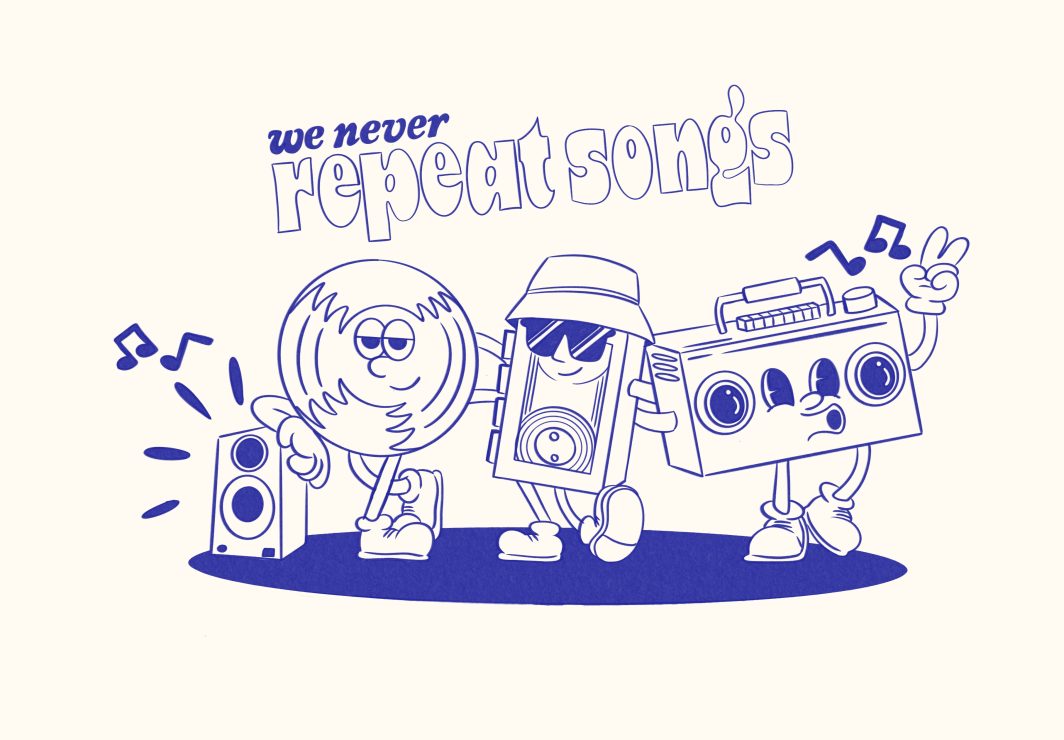Instagram and TikTok have made me hate some of my favourite songs

Illustration by Chloe Latour.
After hearing so much hype surrounding Saltburn, I finally sat down to watch it. As Barry Keoghan flaunted his immaculate body in the final scene, a wonderfully catchy dance song that I had never heard before played. “That’s a cool song,” I thought to myself, and I added it to my playlist.
Now, a few weeks later, I can’t stand the sound of it.
“Murder on the Dancefloor,” a 2001 hit by English singer-songwriter Sophie Ellis-Bextor, is a great song, I’ll admit. But after being swallowed by the internet, chewed up, and regurgitated to me every time I open Instagram, it has become tainted by its online pervasiveness.
Yes, I know it’s my own fault for spending too much time scrolling online, but should I really be punished by the destruction of every new song I like? Does every popular tune need to turn into a rage-inducing soundbite? I don’t think so.
Similarly, I was so happy for Kate Bush when her magnum opus “Running up that Hill” got its newfound time in the limelight, hitting number one in many countries after its use in Stranger Things. But now, when I hear her haunting vocals and epic synths, I don’t think of Kate Bush or even Max floating in the air in one of Stranger Things’ best moments. Instead, I’m reminded of the months where I couldn’t open my phone without seeing endless low-quality Instagram reels regurgitating that stupid song.
But perhaps the song to succumb to this fate the worst is the French-afrobeat fusion “Makeba” by Jain. I heard it for the first time just a few months before it randomly gained popularity all over social media. At the time, I thought this song about an important historical figure was not only catchy, but unique. Now, I have a visceral reaction just thinking about it.
“Teenage Dirtbag” by Wheatus, “Bad Habit” by Steve Lacy, “Surround Sound” by JID, the list goes on and on. All of these have been permanently ruined for me. They only serve to remind me of my phone addiction and the most infuriating parts of the internet. Even whole genres aren’t safe, as “phonk” itself was destroyed by edgy 12-year-olds (though it never really had any artistic merit to begin with.)
Is it shallow to hate a song just because of its popularity? Of course it is, but I’m shallow. I like to think that I’m somehow better than everyone else online. Either I feel basic for enjoying a song or hearing it on repeat turns it into a cheese grater for my ears. It’s a lose-lose situation.
Conversely, TikTok isn’t just ruining old music, but it’s also actively encouraging the production of lazy, uninspired music. Going viral on social media is one of the easiest ways for an up-and-coming musician to garner listeners. From my experience, this has encouraged artists to write songs to fit into short, attention span-ruining videos or to serve as background music to some dance challenge. I swear, if “ABCDEFU” by Gayle had come out in a world without social media, I never would have had to listen to it. That would be a better world.
Going even further beyond that, there isn’t really any difference between a negative or positive interaction on social media. The algorithm can’t see the difference between a fan leaving a supportive comment under a musician’s song and or a hater saying they never want to hear it again. Both of those interactions lead to the same outcome — boosting popularity. This means that even a song that generates mostly hate comments has a fighting chance to gain some real traction.
All of this has made me a real snob about my music choices. I’m actively praying that the artists I care about most don’t go viral because I know that if my favourite song becomes a TikTok trend it’ll be ruined forever. Do I think it’s good that social media is introducing old hits to the younger generation? Of course. And am I saying you shouldn’t listen to a song just because it went viral? Of course not. But if you put on Tate McRae around me, I’ll be leaving the room.






